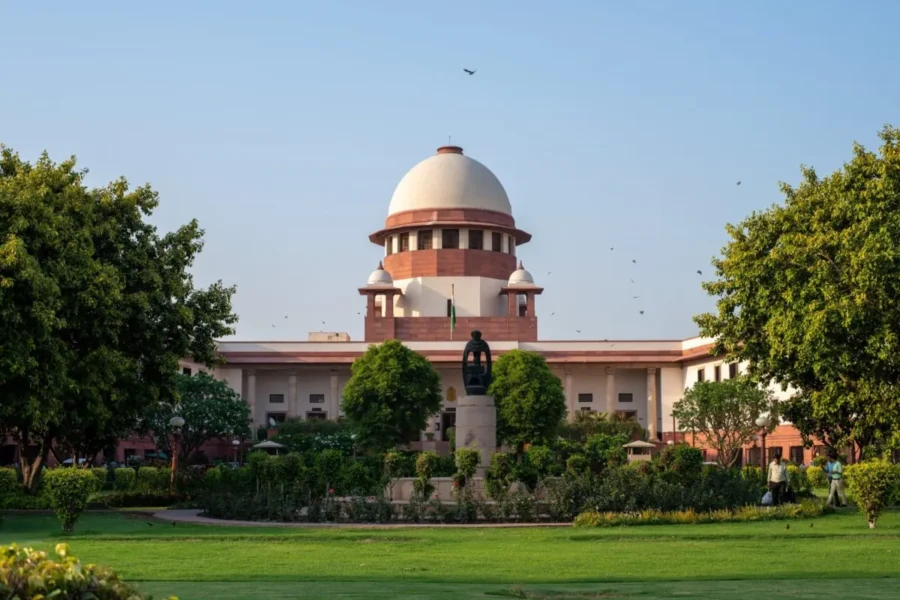Pioneering Child Rights Advocate Sheela Barse’s Impactful Legal Battle
Court: – Supreme Court of India
Case Title:- Sheela Barse vs State Of Maharashtra 1983
Appellant: – SHEELA BARSE
Respondent: – STATE OF MAHARASHTRA
Bench: – Justice Rangnath Misra, Justice P.N. Bhagwati, Justice Amrendra Nath, Justice R.S. Sen and Justice M.M Dutt.
Decided On: – 15/02/1983
Introduction:
Welcome to the official blog of the Law Offices of Kr. Vivek Tanwar Advocate and Associates, where we are dedicated to providing litigation support services for matters related to Women’s Rights On Arrest. In today’s blog post, we aim to shed light on the prevailing issues surrounding Criminal Matters (Cr. PC, IPC), the legal framework for their protection, and the steps we can take as a society to combat these acts. Join us as we explore this critical subject and empower you with the knowledge to protect your rights and safety.
Sheela Barse, a seasoned activist and journalist, is widely recognized for her instrumental role in introducing the concept of child rights in India. Her advocacy efforts took shape through a series of public interest litigations filed before the Supreme Court of India. These cases shed light on critical issues such as custodial violence against women prisoners in Bombay’s police lock-ups. In one instance, Barse interviewed female inmates in the Bombay Central Jail in May 1982, with the Inspector General of Prisons’ permission. Shockingly, five out of fifteen women she interviewed alleged police assaults during their time in the jail. This prompted a legal battle that posed essential questions about the treatment of female prisoners, potential violations of Article 21 of the Constitution, and the state’s responsibility to provide legal counsel to prisoners.
Issue:
- Whether the mistreatment faced by female prisoners is justifiable?
- Whether the ill-treatment of female prisoners constitute a violation of the rights enshrined under Article 21 of the Constitution?
- Whether it is the responsibility of the State Authorities to provide legal counsel to prisoners?
The Legal Framework:
The Indian Constitution, under Article 39A, underscores the state’s responsibility to provide free legal aid to its citizens, ensuring equal access to justice. Furthermore, Article 21 guarantees the right to life and liberty and emphasizes equality before the law under Article 14. The court’s stance was that due to mandates within Articles 14, 19, and 39A of the Indian Constitution, impoverished individuals in custody must receive legal assistance. The court took steps to ensure that social workers reported any mistreatment of female detainees in jails, reinforcing the need for legal aid organizations at various levels.
Barse’s Reporting and Investigation:
Sheela Barse’s initial letter, highlighting custodial violence against female prisoners, transformed into a writ petition. It served as the impetus for the Court to serve notices on the state of Maharashtra, as well as key law enforcement officers. These officers included the Superintendent of the Bombay Central Jail and the Inspector General of Prisons in Maharashtra. A subsequent investigation, conducted by Dr. Desai of the College of Social Work in Bombay, sought to confirm the allegations. The investigation revealed the dire conditions and issues faced by female prisoners, including incidents of fraud committed against foreign national inmates by an unscrupulous lawyer.
Safeguarding Prisoner Rights:
The Supreme Court of India has consistently recognized the importance of protecting prisoner rights. It has issued directives to prison and police authorities to ensure the humane treatment of prisoners, categorically rejecting any actions that infringe on human dignity or impose undue torture. The court underscored that the right against torture falls under Articles 14 and 19 of the Constitution.
Conclusion:
The Court’s decision was a landmark moment in safeguarding the rights of prisoners and ensuring their access to legal aid. It emphasized that denying prisoners access to legal assistance jeopardizes the principles of equality and the right to life and personal liberty enshrined in Articles 14 and 21 of the Indian Constitution. The Court’s instructions for female prisoners’ protection were clear, ensuring separation from male prisoners, female guards, and female police officers’ presence during interrogations, among other critical safeguards. Sheela Barse’s dedicated advocacy played a vital role in shedding light on this issue, leading to improved conditions for female inmates. Ultimately, the case reinforced the importance of democracy, raising awareness of fundamental rights, and the pivotal role of the judiciary in upholding justice. It stands as a testament to the power of a single individual’s effort in bringing about positive change.
We are a law firm in the name and style of Law Offices of Kr. Vivek Tanwar Advocate and Associates at Gurugram and Rewari. We are providing litigation support services for matters related to the Criminal Matters (Cr. PC, IPC).

